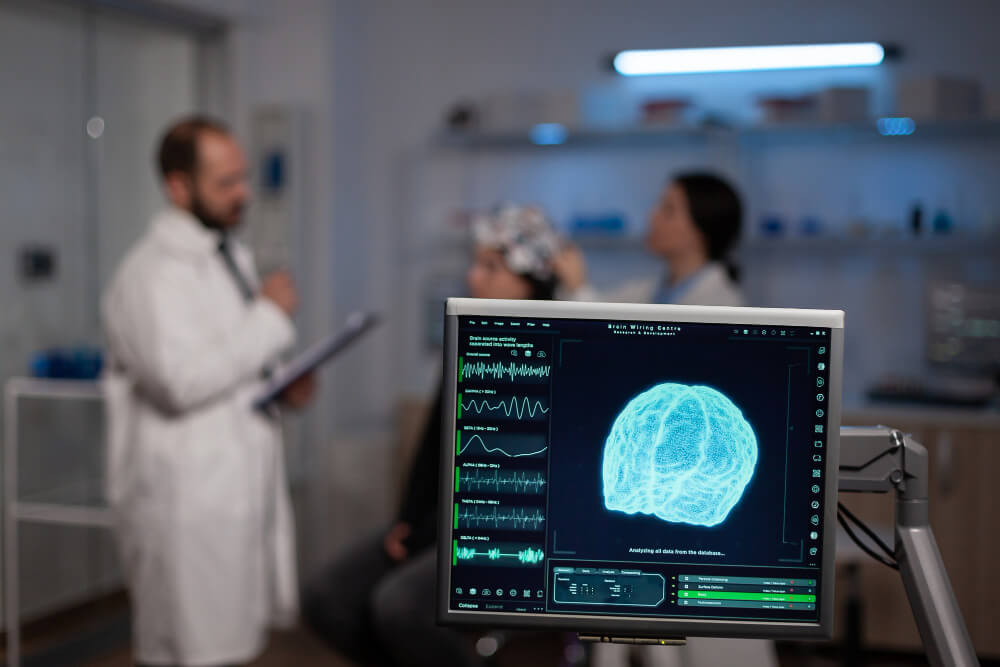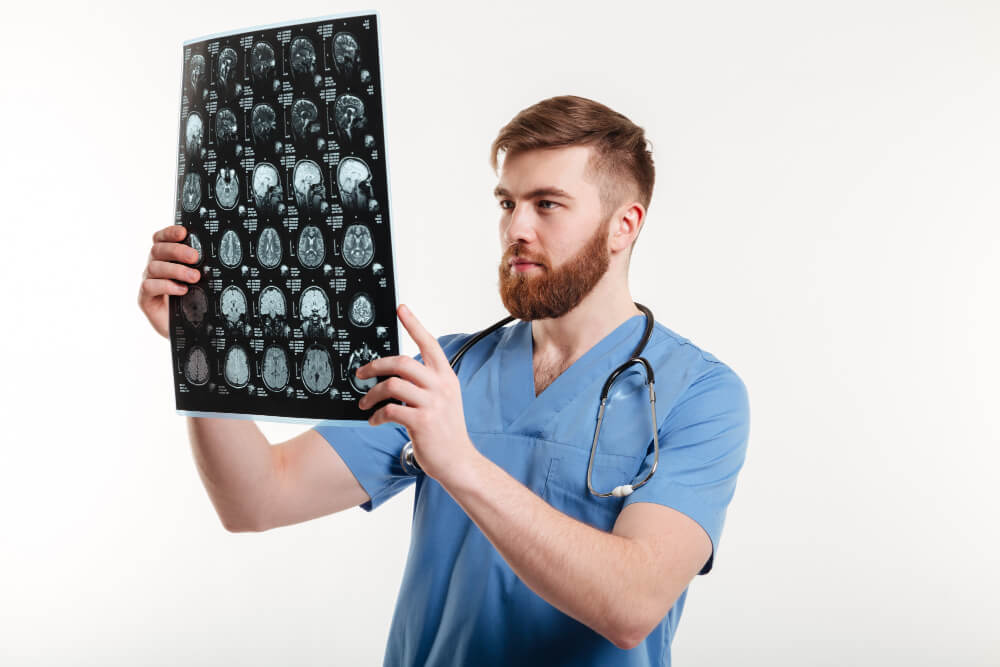Neurosurgery: Biopsy Procedures for Accurate Diagnosis
A brain biopsy is a surgical procedure that involves removing a small sample of tissue from the brain. This tissue sample is then examined under a microscope by a pathologist to diagnose various neurological conditions. Neurosurgeons, highly skilled medical professionals specializing in brain and spine surgery, are responsible for performing brain biopsies.
Why is a Brain Biopsy Performed?
A brain biopsy is often performed when other diagnostic tests, such as imaging studies (MRI, CT scan, PET scan), are inconclusive or when a definitive diagnosis is necessary to determine the best course of treatment. Some common reasons for a brain biopsy include:
Diagnosis of Brain Tumors
To determine the type and grade of a brain tumor, which helps in planning the appropriate treatment.
Types of Brain Tumors
- Gliomas: Tumors that originate from brain cells.
- Meningiomas: Tumors that arise from the meninges, the membranes covering the brain and spinal cord.
- Metastatic Tumors: Tumors that have spread to the brain from other parts of the body.
Diagnosis of Inflammatory Disease
To diagnose inflammatory conditions affecting the brain, such as encephalitis or meningitis.
Types of Inflammatory Diseases
- Encephalitis: Inflammation of the brain tissue.
- Meningitis: Inflammation of the membranes surrounding the brain and spinal cord.
Diagnosis of Degenerative Diseases
To diagnose degenerative diseases like Alzheimer’s disease or Parkinson’s disease.
The Role of a Neurosurgeon
A neurosurgeon plays a crucial role in performing a brain biopsy. They have the expertise and specialized training to navigate the complex anatomy of the brain and minimize the risk of complications.
- Pre-Operative Evaluation Before the surgery, the neurosurgeon will conduct a thorough evaluation, including a medical history, neurological examination, and imaging studies.
- Surgical Planning The neurosurgeon will carefully plan the biopsy procedure, including the approach to the brain and the location of the tissue sample.
- Surgical Technique The neurosurgeon will use advanced surgical techniques to access the target area and remove a small tissue sample. This may involve open surgery or minimally invasive techniques, such as stereotactic biopsy.
- Post-Operative Care After the surgery, the neurosurgeon will monitor the patient’s recovery and provide appropriate post-operative care, including pain management and infection prevention.
Risks and Complications of Brain Biopsy
While brain biopsy is a relatively safe procedure, there are potential risks and complications, including:
- Bleeding Bleeding in the brain can occur during or after the procedure.
- Infection Infection at the surgical site.
- Seizures Seizures may occur, especially in patients with pre-existing seizure disorders.
- Brain Swelling Swelling of the brain tissue.
- Damage to Surrounding Tissue Accidental damage to nearby brain tissue.
Recovery from Brain Biopsy
The recovery time after a brain biopsy varies depending on the specific procedure and the individual’s overall health. Most patients can be discharged from the hospital within a few days.
- Post-Operative Care After the surgery, patients may experience some discomfort, such as headache or fatigue. Pain medication can be prescribed to manage pain.
- Physical and Occupational Therapy Physical and occupational therapy may be recommended to help with any weakness or coordination issues.
- Follow-up Care Regular follow-up appointments with the neurosurgeon are essential to monitor the patient’s recovery and discuss the biopsy results.
Choosing a Neurosurgeon
Selecting a qualified neurosurgeon is crucial for a successful brain biopsy. Consider the following factors when choosing a neurosurgeon:
- Experience and Expertise Look for a neurosurgeon with extensive experience in performing brain biopsies.
- Board Certification Ensure the surgeon is board-certified in neurosurgery.
- Hospital Affiliation Choose a surgeon who is affiliated with a reputable hospital with advanced neurosurgical capabilities.
Conclusion
A brain biopsy is a valuable diagnostic tool that can help neurosurgeons accurately diagnose neurological conditions. By choosing a skilled and experienced neurosurgeon, patients can minimize the risks associated with the procedure and maximize the chances of a successful outcome.
Schedule an appointment with our Neurosurgeon for Biopsy (214) 949-8918 Or Visit us https://specialtycareclinics.com/


